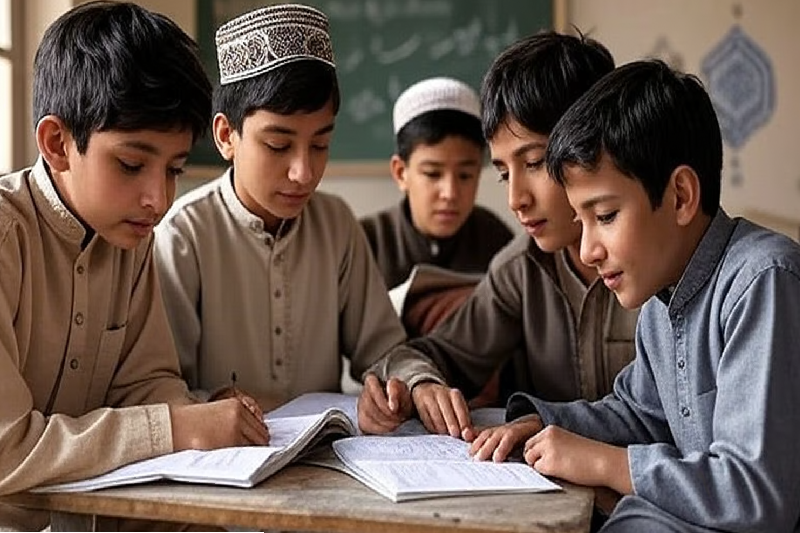
Uttarakhand Passes Minority Education Bill, Abolishes Madrasa Board for Uniform Regulation
In a landmark move for the education sector in Uttarakhand, the state Governor, Lt Gen Gurmeet Singh (Retd), has given his assent to the Uttarakhand Minority Education Bill, 2025. The approval sets the stage for a major overhaul of the state’s minority education framework, replacing the Madrasa Education Board Act, 2016, and related recognition rules with a single, unified law. The existing madrasa-specific system, including the Non-Government Arabic and Persian Madrasa Recognition Rules of 2019, will expire by July 1, 2026, paving the way for a more streamlined and inclusive governance system for all minority educational institutions in Uttarakhand.
A Unified Authority for Minority Education
Under the new legislation, a dedicated authority will be established to oversee minority educational institutions across the state. This body will be responsible for granting recognition, regulating educational standards, and ensuring that all minority institutions adhere to the Uttarakhand Board of School Education guidelines. By centralizing oversight, the authority aims to ensure fair and transparent student evaluations, maintain quality standards, and strengthen accountability in the management of minority schools.
Chief Minister Pushkar Singh Dhami welcomed the Governor’s approval, stating that the new framework would make the state’s minority education system “more transparent, accountable, and quality-oriented.” The law empowers the government to monitor operations effectively and issue necessary directives to ensure educational excellence and social harmony.
Expanding Recognition to All Minority Communities
A significant aspect of the bill is its expansion of recognition beyond Muslim institutions. Historically, only Muslim-run institutions were officially recognized as minority educational institutions in Uttarakhand. The Minority Education Bill, 2025, now brings schools and educational institutions run by Sikh, Jain, Buddhist, Christian, and Parsi communities under the same regulatory umbrella.
This shift ensures equal rights, recognition, and regulatory standards for all minority communities, fostering inclusivity and uniformity in governance. The bill addresses the disparities and limited recognition in the previous system, creating a more balanced framework that reflects Uttarakhand’s diverse socio-cultural fabric.
Addressing Long-Standing Issues in Madrasa Education
The previous madrasa-centric framework had faced several operational and administrative challenges. Chief Minister Dhami highlighted issues such as irregularities in central scholarship distribution, inconsistencies in the mid-day meal scheme, and a general lack of transparency in institutional management. These challenges often hampered the efficient functioning of madrasas and affected the quality of education delivered to students.
The new law is designed to rectify these gaps by empowering the government to oversee minority educational institutions more effectively. By centralizing authority and standardizing regulations, the bill aims to curb irregularities, ensure proper allocation of resources, and enhance transparency in day-to-day operations.
Implementation Across the State
The Minority Education Bill, 2025, was passed during the monsoon session of the Uttarakhand Assembly in Gairsain after receiving cabinet approval in August 2025. It will now be implemented across the state as a uniform law for minority educational institutions.
The transitional phase will see the gradual phasing out of the Madrasa Education Board Act, 2016, and the associated recognition rules by July 1, 2026. During this period, the new regulatory authority will be tasked with ensuring a smooth transition, maintaining continuity in academic schedules, and preserving student rights and institutional recognition during the changeover.
Key Objectives of the New Legislation
The Minority Education Bill aims to:
- Establish a single governing authority for all minority educational institutions.
- Standardize recognition, evaluation, and regulatory procedures across communities.
- Ensure adherence to the Uttarakhand Board of School Education standards.
- Promote transparency, accountability, and quality-driven education.
- Address historical disparities and irregularities in scholarship distribution, mid-day meals, and administrative governance.
- Foster inclusivity by recognizing educational institutions from Sikh, Jain, Buddhist, Christian, Parsi, and Muslim communities.
By achieving these objectives, Uttarakhand is positioning its minority education system as a model of fairness, efficiency, and inclusivity.
Impact on Minority Education
The bill’s implementation promises to transform minority education in Uttarakhand. Schools previously operating under separate frameworks will now follow a uniform regulatory model, which can improve educational standards and student outcomes. By standardizing policies, the state ensures that students from all minority communities have access to high-quality education and equitable opportunities.
Additionally, by monitoring institutional management and student evaluations more rigorously, the government can prevent mismanagement and ensure that benefits such as scholarships and mid-day meals reach the intended beneficiaries efficiently.
Social and Cultural Significance
Beyond administrative efficiency, the Minority Education Bill, 2025, carries social significance. By including all minority communities under a single law, the state fosters inclusivity and equality. It mitigates historical imbalances and ensures that no community’s educational institutions are left behind.
Furthermore, by addressing irregularities in resource distribution and administrative oversight, the law strengthens public trust in minority educational institutions and aligns with broader goals of social harmony and educational equity.
Conclusion
Uttarakhand’s Minority Education Bill, 2025, represents a transformative shift in the governance of minority educational institutions. By abolishing the Madrasa Board and related rules, the state is creating a unified, transparent, and accountable framework that recognizes all minority communities equally.
The bill addresses long-standing challenges in madrasa management, ensures equitable recognition and resource allocation, and promotes high standards of education across the state. Its implementation will empower the government to monitor institutions effectively, strengthen governance, and foster inclusivity and excellence in minority education.
This reform is a clear signal that Uttarakhand is committed to modernizing its education system while safeguarding the rights of all minority communities, ensuring that students across the state benefit from a transparent, quality-driven, and equitable learning environment.



